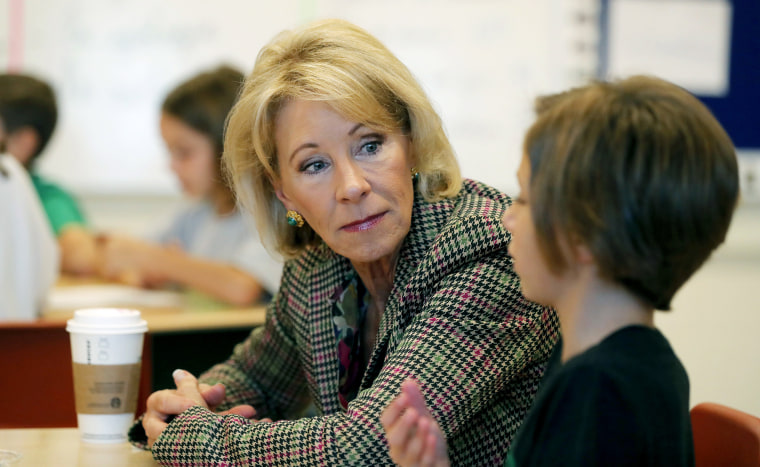Students defrauded by for-profits colleges will more easily be able to get their loans forgiven, thanks to a decision Tuesday by a federal judge who denied a delay the Trump administration wanted.
"It has been a long road both for our clients and for student loan borrowers around the country," said Julie Murray, attorney for Public Citizen, one of the groups representing defrauded students in the lawsuit.
The legislation, titled the William D. Ford Federal Direct Loan Program or "2016 Rule," was first blocked by Department of Education Secretary Betsy DeVos in April 2017, weeks before it was set to go into law.
"The Department of Education has made it clear that they take a different view than the 2016 Rule and that view is tied to their close relationship with members of the for-profit college industry," Murray said.
U.S. District Judge Randolph Moss ruled last month that the decision by Secretary DeVos to delay the regulation was unlawful. On Tuesday, he denied the motion by the California Association of Private Postsecondary Schools (CAPPS), an organization representing for-profit colleges in the state, to further postpone the rule.
CAPPS had no comment on the decision as of Tuesday afternoon.
The rule prohibits schools receiving federal funds from relying on forced arbitration clauses and from banning class-action lawsuits. It also lays out a clear process for students from schools found to have committed fraud to have their loans discharged and requires automatic discharge of loans for students who cannot complete their education because their school shuts down.
Department of Education spokesperson Liz Hill told NBC News on Tuesday: "The Secretary continues to believe the rule promulgated by the previous administration is bad policy, and the Department will continue the work of finalizing a rule that protects both borrowers and taxpayers."
DeVos announced on Friday that she will no longer seek delay in this case, stating that although she "respects the role of the court", the Department will soon be issuing further information regarding "next steps" for the 2016 borrower defense regulation.
Department officials initially had plans to finalize their regulation by Nov. 1 but have since been delayed, citing a flood of public comments regarding the legislation that must be sorted and responded to.
Therefore, under the Higher Education Act, any diversions or proposed disputes made after the deadline by the Department of Education will not be able to go into effect until 2022.
With the rule in effect, for at least the next two years, tens of thousands of students whose schools were closed mid-program or shortly after graduation, will become eligible for automatic loan discharge.
